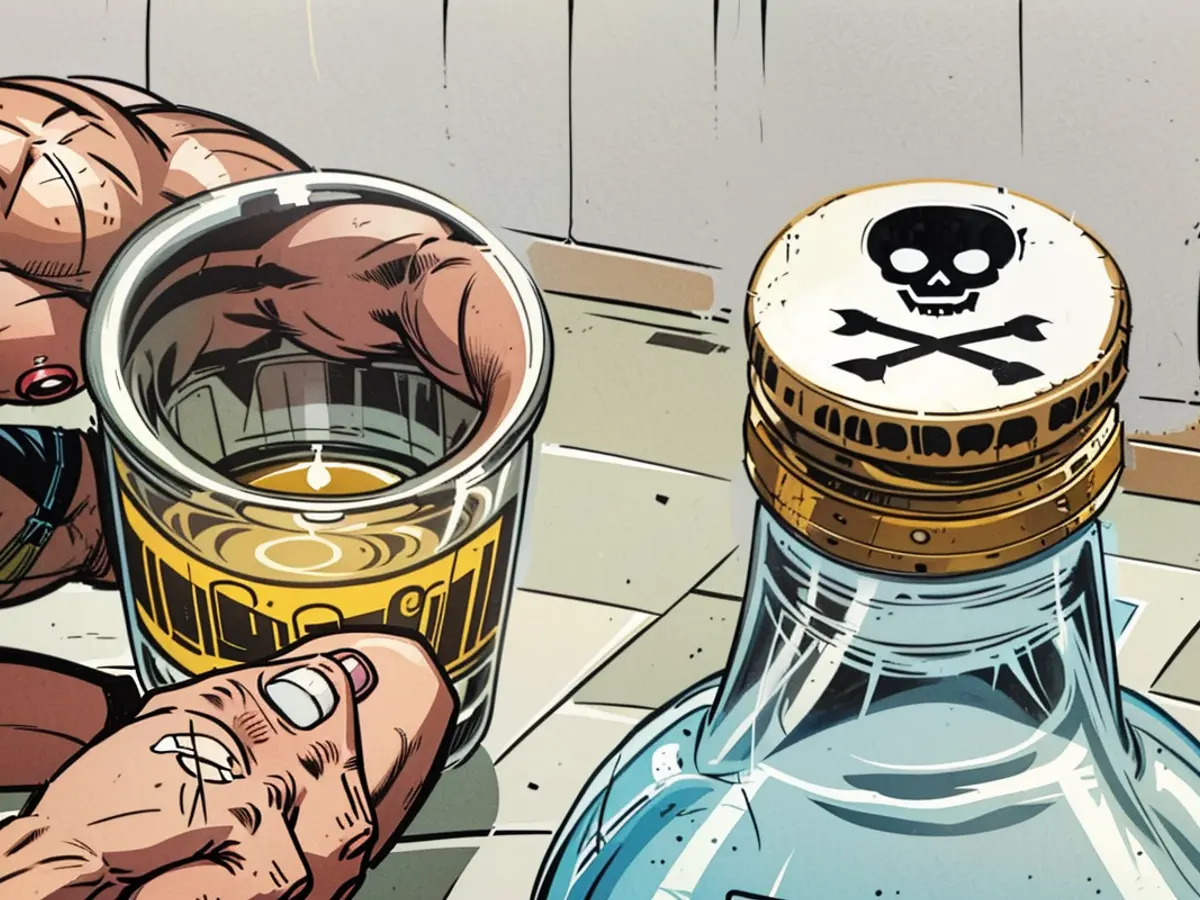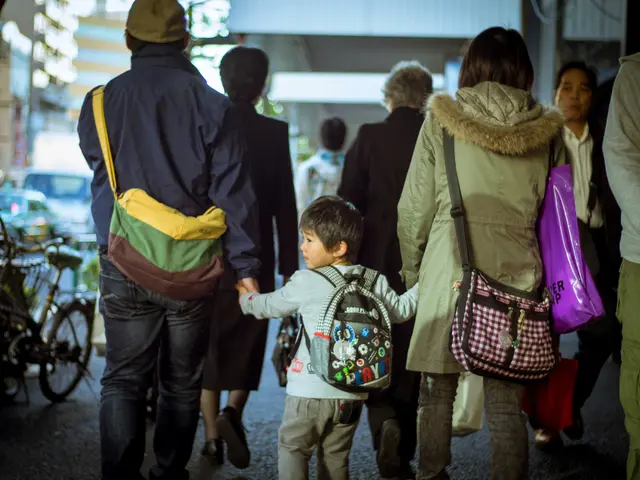In the vibrant city of Bangkok, Thailand, a tragic situation unfolds as six individuals succumb to a deadly contamination in their alcohol. Another 22 individuals are severely ill, according to reports shared by the Bangkok Metropolitan Administration. Meandering through the winding streets of northwestern Bangkok, specifically in the Khlong Sam Wa district, authorities uncover 19 clandestine alcohol sales spots.
Thailand's stringent regulations on alcohol sales, which limit sales to certain hours and prohibit them on religious occasions, have sparked controversy. Critics argue that these strict rules fuel a booming underground market for cost-effective homemade alcohol, referred to as "Ya Dong." Domestic distilleries churn out this illicit brew, sometimes laced with methanol to amplify its effects.
Methanol consumption can lead to a haveil of consequences, including blindness, liver damage, and, in extreme cases, death. The district chief administrative officer of Khlong Sam Wa, Somwang Chaiparkraiwan, revealed to AFP that authorities have taken action against illegal alcohol vendors in the area. He stated, "The police and revenue department have arrested them."
While the horrifying incidents in Khlong Sam Wa district dominate the headlines, it's crucial to remember that methanol-contaminated alcohol-related deaths and illnesses have been documented in various locales, including Laos and Vietnam. Tourists have tragically succumbed to methanol poisoning after consuming tainted alcoholic beverages.
The primary causes behind such tragedies are twofold: contaminated drinks and poor regulation. Contaminated drinks, such as homemade spirits, spirit-based cocktails, and discounted brand-name alcohol, frequently harbor methanol. In areas with less stringent alcohol production regulations, methanol can surface in the final product, resulting in highly toxic concoctions.
The consequences of methanol poisoning are grim and extend beyond the immediate health effects. Delayed symptoms, vision concerns, and economic implications for the tourism industry have been observed. Symptoms may not manifest for up to 24 hours, which can lead to delayed diagnoses and treatment. Vision-related challenges, including blindness, blurred vision, and altered color perception, have plagued victims of methanol poisoning. In addition, the scourge of methanol-contaminated alcohol has repercussions for the tourism sector, as it deters potential tourists from visiting affected regions.
Preventive measures are essential in the battle against methanol-contaminated alcohol. Avoiding home-made alcoholic beverages, selecting reputable establishments, and exercising caution with inexpensive alcohol can help curb the risk.
Despite the ongoing tragedy in the Khlong Sam Wa district of Bangkok, it's imperative to expand our focus beyond this single location and consider the broader context. Methanol-contaminated alcohol has had devastating consequences in various parts of the world, suggesting a pressing need for heightened vigilance and comprehensive initiatives addressing alcohol production regulations.







